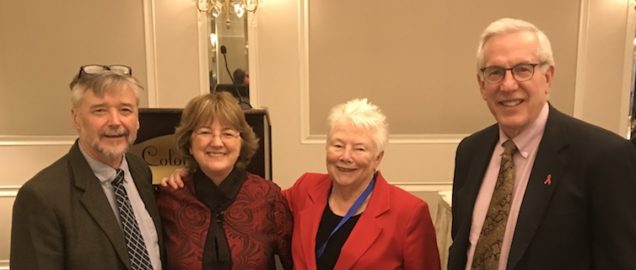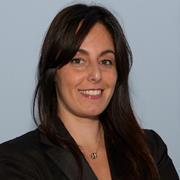Faculty

Learn more about the diverse backgrounds and research interests of our faculty!
Linda Bandini, PhD
Dr. Bandini‘s research interests include:
- Childhood obesity
- Energy expenditure in children
- Health promotion
- Dietary intake and physical activity in children with developmental disabilities
Jan Blusztajn, PhD
Dr. Blusztajn‘s research interests include:
- Alzheimer’s disease
- Prenatal programming of brain development
- Aging by essential nutrient availability during gestation
Jude Deeney, PhD

Dr. Deeney‘s research is designed to discern the nutrient-derived metabolic signals leading to glucose-and fatty acid-induced insulin exocytosis from the pancreatic ß-cell. FA acutely stimulates glucose-induced insulin secretion (GSIS) while chronic exposure to elevated FA and glucose can result in glucolipotoxicity (GLT) with basal hypersecretion and inhibition of GSIS. Despite the adverse effects of chronic exposure, FA is known to be required for normal exocytosis from the ß-cell. Current research includes:
- Deciphering the dual effects of FA on GSIS to lead to the possible development of therapies that would reduce the inhibitory effects while sparing the stimulatory effects of FA on the ß-cell.
- Identifying the lipids or lipid classes involved in enhancing and suppressing GSIS and assessing their effects on lipid-modulated or modulating proteins.
The overall goal of the Denis lab is to understand the fundamental mechanisms of transcriptional control of growth and development, and particularly, how chromatin-based disruptions of the eukaryotic cell cycle can lead to malignancy. Research techniques utilized in the lab range from basic molecular biology techniques to proteomic analyses, to transgenic and knockout mouse models. Results to date have broad significance for our understanding of:Gerald Denis, PhD

The overall focus of the Farmer laboratory is to understand the molecular mechanisms controlling the formation and function of adipocytes with a focus on identifying the signaling pathways and transcription factors that regulate adipogenesis. Current projects are investigating:Stephen R. Farmer, PhD

Davidson Hamer is a Professor of International Health and Medicine at the Boston University School of Public Health and Chobanian & Avedisian School of Medicine. He has twenty years of field experience in neonatal and child survival research including studies of micronutrient interventions, maternal and neonatal health, malaria, pneumonia, and diarrheal diseases. Major current projects include:Davidson Hamer, MD, FACP, FIDSA

Dr. Holick and his team of researchers continue to be leaders in the field of vitamin D, osteoporosis, metabolic bone disease, psoriasis and hair research. Dr. Holick’s work explores the nature of vitamin D deficiency and concludes it to be one of the most commonly unrecognized medical conditions, a condition that leaves millions at risk of developing not only osteoporosis and fractures but also numerous serious and often fatal diseases, including several common cancers, autoimmune diseases, infectious diseases and heart disease. Because the skin is an important source of vitamin D, a human skin equivalent and a liposomal model have been developed to mimic the photoproduction of vitamin D in human skin. Using these models systems, researchers demonstrated that during exposure to solar simulated-sunlight, a unique membrane-associated mechanism stabilizes the previtamin D3 in a cis,cis-conformation and results in its rapid conversion to vitamin D3. It has now been demonstrated that human skin also produces several photoproducts including tachysterol and lumisterol, which may have important biologic functions in the skin. Dr. Holick has initiated a program to evaluate the effect of vitamin D deficiency in advancing colon tumor growth.Michael F. Holick, PhD, MD

The Jiang lab focuses on how insulin signaling networks and innate immunity regulate metabolic functions. Current research in the lab includes:Zhen Jiang, MD, PhD

Her research focuses on the molecular mechanisms underlying atherosclerotic cardiovascular disease, with particular emphasis on the role of redox signaling in vascular endothelial cell dysfunction. She investigates how various risk factors—such as hyperlipidemia, aging, and chronic alcohol abuse—contribute to endothelial dysfunction and the progression of atherosclerosis. In addition to elucidating the molecular basis of atherosclerosis, her work also explores multidisciplinary approaches to assess vascular function in murine models. She is further interested in the development of targeted nanomedicine delivery systems for therapeutic applications within the cardiovascular system.Jingyan Han, PhD

The primary goal of the Layne laboratory is to identify novel pathways that control fibroproliferation with the goal of developing therapeutic inhibitors. Current research interests include:Matthew Layne, PhD

Dr. Lenders has been the medical director of the NFL Program (Pediatrics – Nutrition & Fitness for Life) since 2003. She also heads the Pediatric Nutrition Support Services at Boston Medical Center, and she serves as attending physician for the Nutrition Support Team at the Children’s Hospital of Boston. Dr. Lenders is a former family practitioner with a master’s degree in tropical medicine, who graduated with honors from the State University of Liege, Belgium. She spent several months in the Congo with Médecins sans Frontières and three years in Bangladesh at the International Center of Diarrheal Diseases and Research. Her current research interests include:Carine Lenders, MD, ScD
Dr. Moore directs the Framingham Children’s Study, which has shown how lifestyle factors starting early in life relate to the development of obesity during childhood and later cardiovascular risk. Much of Dr. Moore’s recent research has dealt with key analytic questions related to obesity and diabetes:Lynn L. Moore, DSc, MPH

Dr. Pearce has received national and international recognition for her research, has published many original articles, reviews, and editorials, is a sought-after lecturer, and has received multiple awards and honors. Her main areas of clinical and research expertise are:Elizabeth Pearce, MD, MSc

The Perissi lab investigates how different inputs are integrated and translated in fine-tuning of transcriptional regulation via the action of signal transduction pathways, ubiquitin conjugating machineries and chromatin remodeling enzymes. Techniques used include: Current research is focused on:Valentina Perissi, PhD

Dr. Pickering’s research expertise is in adipose tissue differentiation and fibrosis. He is interested in examining the links between dysfunctional adipose tissue and the development of cardiometabolic diseases using both biomarker data from large scale cohort studies and more mechanistic experiments using in-vitro models of adipocyte development.Richard T. Pickering, PhD

Dr. Rabhi’s research is focused on adipose tissue remodeling and cellular crosstalk during both obesity and induced thermogenesis. He employs cutting-edge technologies including single-cell sequencing, spatial transcriptomics, and mass spectrometry to uncover novel mechanisms of adipose tissue remodeling in disease. As a faculty member in the Biochemistry Department, his work aims to advance our understanding of how cellular and molecular interactions drive metabolic dysfunction and adaptation.Nabil Rabhi, PhD

Dr. Seta is an Assistant Professor of Vascular Biology at the Boston University Chobanian & Avedisian School of Medicine. Although she teaches Vascular Biology, she has been trained in Pharmacology and Cardiovascular Physiology, as well. Her current research is on genetic and molecular mechanisms of vascular smooth muscle function and stiffening and novel therapeutic targets for aortic aneurysms and dissections. Her research interests are Arterial Stiffness, Aortic Aneurysm/Dissection, Cardiovascular Physiology, Cardiovascular Disease Related to Metabolic Syndrome, Hypertension, Oxidative Stress, Pulmonary Hypertension, Vascular Biology, and Vascular Diseases.Francesca Seta, PhD

Dr. Sheehy‘s research interests include: pregnancy complications, cardiovascular disease, and modifiable risk factor to reduce cardiovascular health disparity.Shanshan Sheehy, ScD

Nicole Spartano, PhD serves as the Director of the Glucose Monitoring Station at the Framingham Heart Study. Her research interests include exploring:Nicole L. Spartano, PhD

Dr. Tornheim has spent years studying the spontaneous oscillatory behavior of glycolysis in muscle extracts. These oscillations involve the regulatory properties of the key control enzyme, phosphofructokinase, which was therefore the object of related kinetic studies. Current research in the lab includes: In collaboration with other members of the Diabetes and Metabolism Unit, research on the metabolic changes that may be responsible for the frequently occurring vascular complications of diabetes.Keith Tornheim, PhD

Dr. Walker’s research focuses on the role of diet as a modifiable factor in shaping and amending the trajectory of cardiovascular metabolic diseases with the application of epidemiological and data science approaches. She has conducted preclinical, clinical, and epidemiologic research examining the influence of diet on various biological systems (transcriptomics, proteomics, metabolomics, and gut microbiota). Areas of interest include:Maura Walker, PhD

